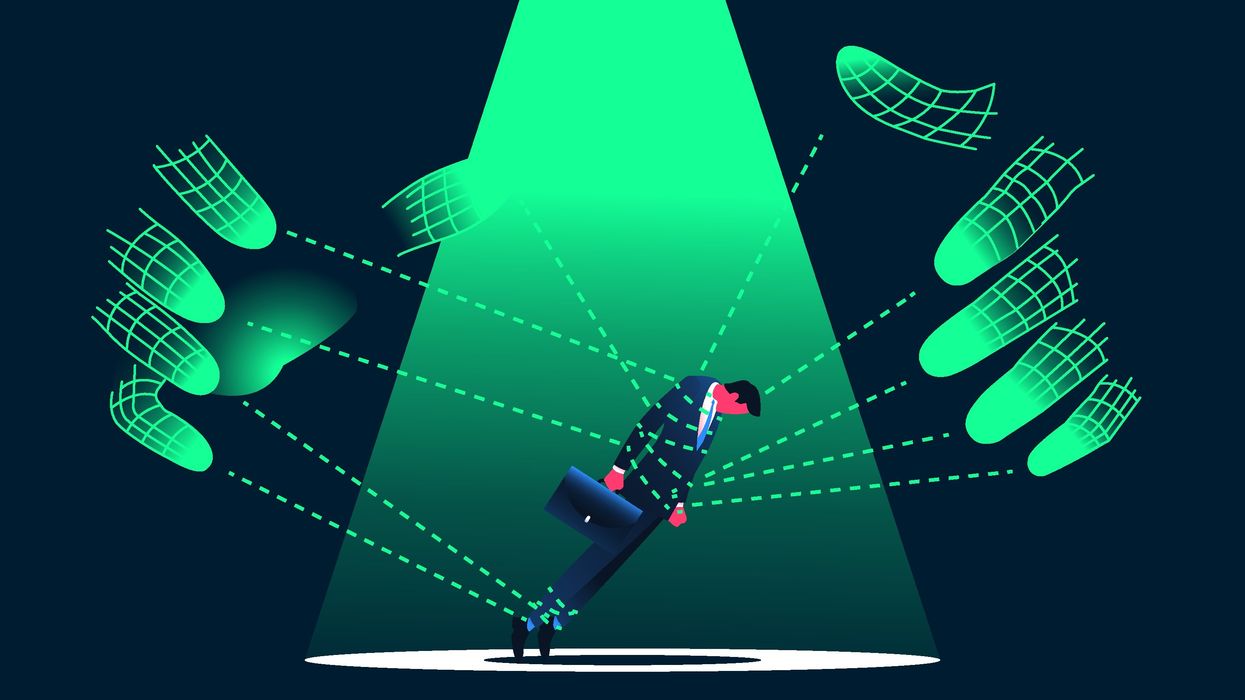
© 2024 Blaze Media LLC. All rights reserved.
Company Sues Former Employee for $340,000, Claims He 'Stole' Twitter Followers
December 30, 2011
How much is a tweet worth?
An Internet company has sued one of its former employees, saying the worker cost the company thousands of dollars in lost business when he took 17,000 Twitter followers with him when he left the firm.
PhoneDog LLC filed a lawsuit in July against Noah Kravitz, a writer who worked for the Mount Pleasant, S.C., company from 2006 until last year. Attorneys for the website, which reviews mobile devices like phones and tablets, said Kravitz owes them $340,000.
The company said when Kravitz resigned, he changed his Twitter name from PhoneDog_Noah to noahkravitz, and kept his 17,000 followers. The company said the followers should be treated like a customer list, and therefore PhoneDog's property.
PhoneDog said Kravitz should pay $2.50 per follower per month for eight months, or a total of $340,000.
“The costs and resources invested by PhoneDog Media into growing its followers, fans and general brand awareness through social media are substantial and are considered property of PhoneDog Media LLC," the company said in a recent New York Times report. "We intend to aggressively protect our customer lists and confidential information, intellectual property, trademark and brands.”
Steve O'Donnell, a patent and intellectual property attorney, said doubted that each follower is worth the $2.50.
"On Twitter, if you hang out long enough, you'll get hundreds of follows from people who are just gathering accounts and broadcasting their own content — people who aren't necessarily paying attention to anything PhoneDog has to say," said O'Donnell, who practices law in Lancaster, Pa. "Twitter followers can come and go. ... It's very transient. It's going to be hard for them to put a dollar number on something that's so ethereal."
Kravitz, who now lives in Oakland, Calif., eventually went to work for a competitor website and now boasts nearly 24,000 Twitter followers.
In court documents, Kravitz said he used the Twitter account in question mostly for personal musings about sporting events and pop culture and, after leaving the company, even sent out messages at PhoneDog's behest about the company's contests and giveaways. Kravitz said he sent such messages as recently as December 2010 and that PhoneDog only objected to his use of the account after he sued them in June for unpaid wages in an ongoing case.
"Only after that do they come out of the woodwork for the first time and say, 'Hey, you converted our property,'" Cary Kletter, Kravitz's attorney, said Thursday. "That case is without merit."
PhoneDog's valuation is flawed and inflated, he said.
"To claim that they're entitled to $2.50 per follower per month defies reason," Kletter said. "If that's the case, Kim Kardashian's account would probably be worth billions of dollars of year."
Celebrities can get paid for tweets, sometimes $10,000 or more per post.
Erik Heels, a patent and trademark attorney in Boston, said the lawsuit may provide a monetary determination, but the most valuable outcome could be in helping companies in setting up their own social media guidelines.
"The lesson for employers is to make sure you define these things in advance for your employees," Heels said. "Don't make any assumptions because you may end up on the wrong side of the lawsuit."
The lawsuit itself could end up being much bigger than a dispute between Kravitz and his old company.
“This will establish precedent in the online world, as it relates to ownership of social media accounts,” said Henry Cittone, a lawyer in New York who litigates intellectual property disputes. “We’ve actually been waiting to see such a case as many of our clients are concerned about the ownership of social media accounts vis-a-vis their branding.”
 Cittone added that a particularly important wrinkle is what value the court might set on the worth of one Twitter follower to a media company, saying the price set could affect future cases involving ownership of social media, reports the Times.
Cittone added that a particularly important wrinkle is what value the court might set on the worth of one Twitter follower to a media company, saying the price set could affect future cases involving ownership of social media, reports the Times.
“It all hinges on why the account was opened,” he said. “If it was to communicate with PhoneDog’s customers or build up new customers or prospects, then the account was opened on behalf of PhoneDog, not Mr. Kravitz. An added complexity is that PhoneDog contends Mr. Kravitz was just a contractor in the related partnership/employment case, thus weakening their trade secrets case, unless they can show he was contracted to create the feed.”
A hearing in the case is set for next month in San Francisco. An attorney for PhoneDog president Tom Klein did not immediately respond to a message seeking comment.
The Associated Press contributed to this report.
Want to leave a tip?
We answer to you. Help keep our content free of advertisers and big tech censorship by leaving a tip today.
Want to join the conversation?
Already a subscriber?
more stories
Sign up for the Blaze newsletter
By signing up, you agree to our Privacy Policy and Terms of Use, and agree to receive content that may sometimes include advertisements. You may opt out at any time.
© 2024 Blaze Media LLC. All rights reserved.
Get the stories that matter most delivered directly to your inbox.
By signing up, you agree to our Privacy Policy and Terms of Use, and agree to receive content that may sometimes include advertisements. You may opt out at any time.



